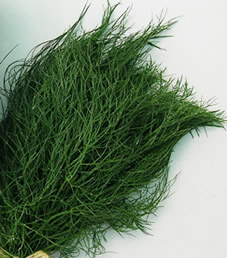Wild fennel
Dill
Absinthe
Basil
Borage
Calamint
Capers
Chervil
Coriander
Tarragon
Chives
Wild fennel
Lavender
Lovage
Lippia Citriodora
Marjoram
Lemon balm
Mint
Myrtle
Oregano
Chilli pepper
Salad burnet
Parsley
Rosemary
Garden rocket
Rue
Sage
Celery
Thyme
Valerian
HISTORICAL HINTS: Foeniculum vulgare, a typical Mediterranean plant, has a very old history; it was introduced by Romans and was very appreciated by Greeks. History of fennel begins exactly in Greece, in the plain Marathon, where the battle between Athens and Persia took place. In this place fennel used to grow wild and Greeks called it marathon. Plinius said that the fennel has a great power to cure eyes, referring to the fact that when snakes changed their skin, they went and rubbed against fennel plant to re-gain sight. This is not the only relation between fennel and snakes: it was believed that fennel was an antidote for snake bites. In religious celebrations, fennel symbolizes a rebirth or spiritual regeneration.
THE PLANT - Wild fennel (Foeiculum vulgare), a perennial herbaceous plant belonging to the Umbrelliferae family, grows naturally in the Mediterranean regions and, in Italy, it is common in marine areas; this shrub grows in sunny, uncultivated, dry areas even if it may be found also in herbaceous soils. Wild fennel has ramified stalk to 150 cm high, small yellow flowers gathered in big umbrellas with 5 or 6 rays on top of which there are fruits, commonly called seeds which have the characteristic hot and sweet aroma.
PROPERTIES - Therapeutic properties of wild fennel are many: it is stimulating, digestive, it favours intestinal gas expulsion and it is also an excellent antiseptic; seeds infusion can be used as mouthwash to solve halitosis problems or can be used as a compress to apply on inflamed skin. Please be careful with wild fennel seeds preparations because an excessive use may be dangerous: they may be irritating for external and slightly narcotic for internal use.
CULINARY USE –
Wild fennel use is very common to aromatize fish and meat courses, salamis, salads, to prepare some cheeses and liqueurs and it is the characteristic ingredient in many regional dishes; in Sicily wild fennel is used to season a typical dish: bucatini with sardines. Seeds, instead, are used to aromatize cheeses, salamis, sauces, bread, sweets and to give a special aroma to wine.























